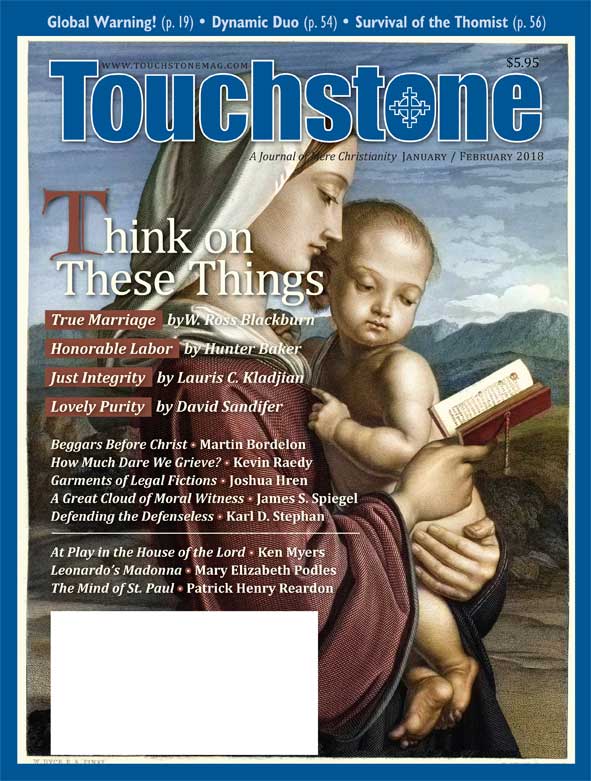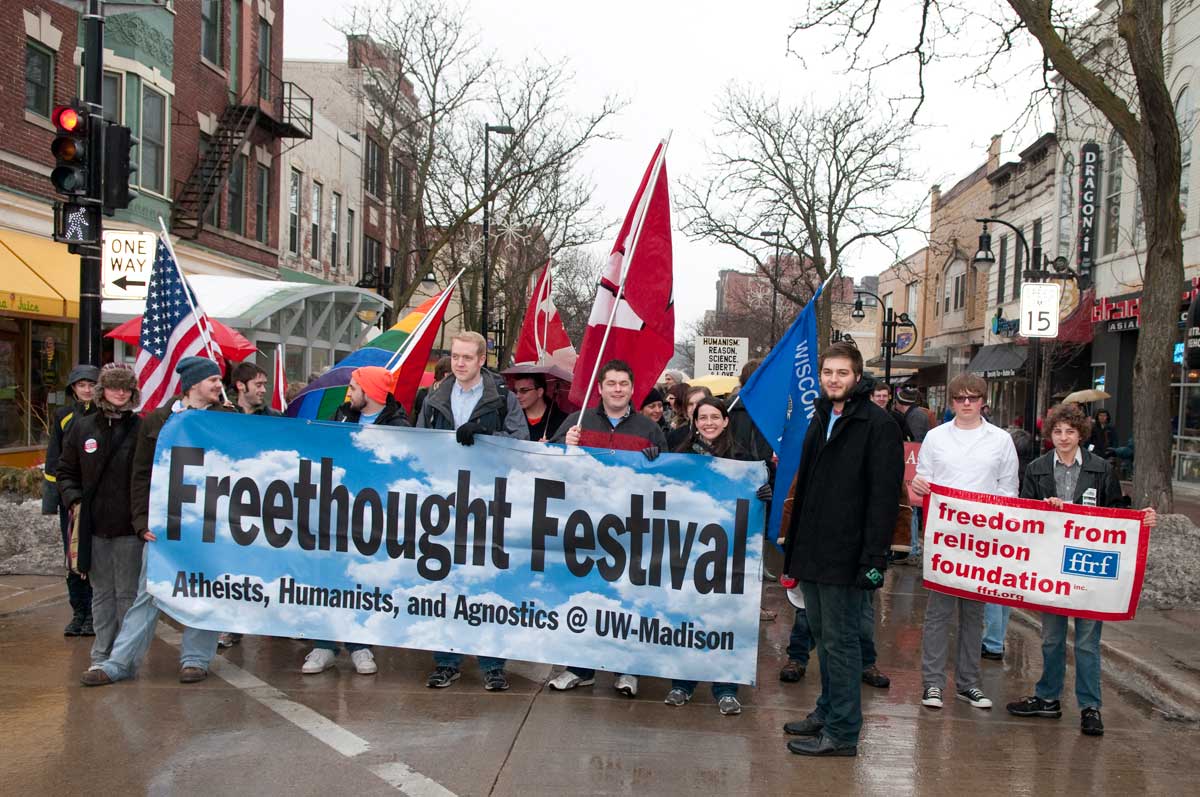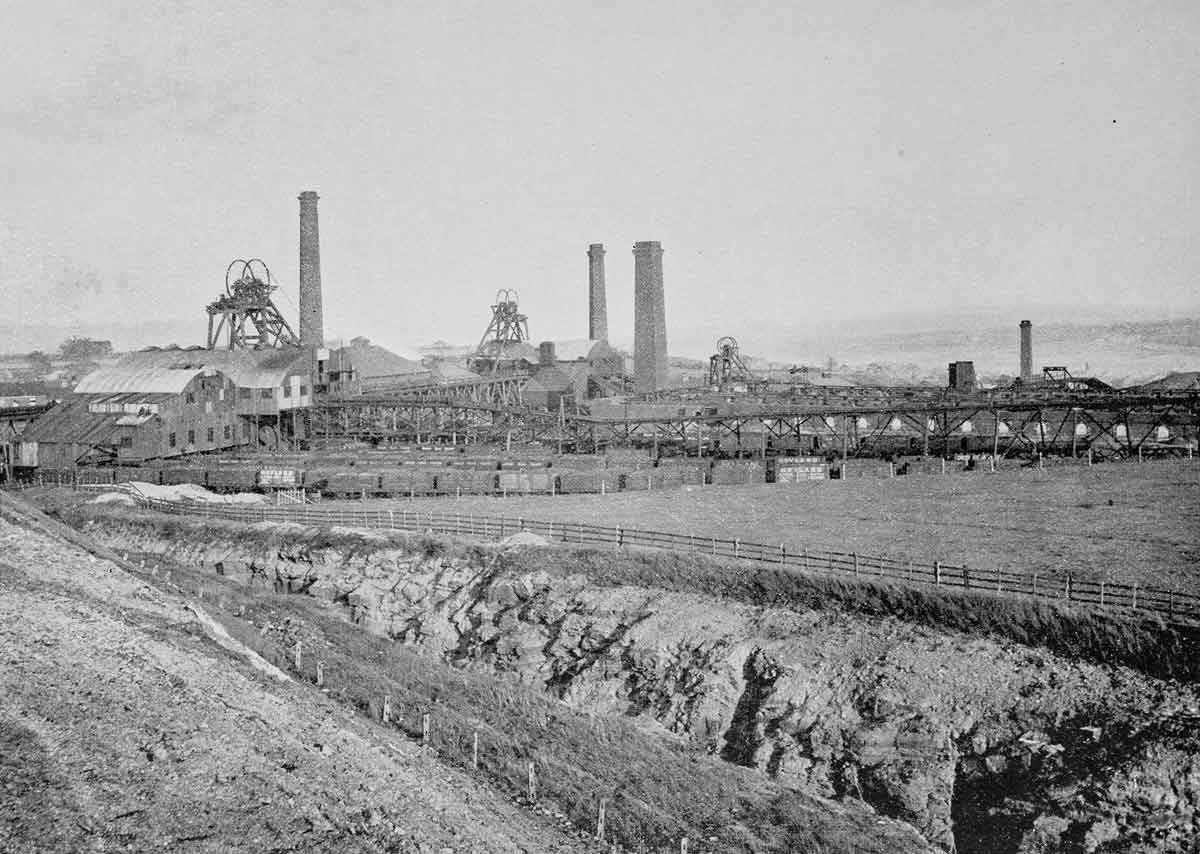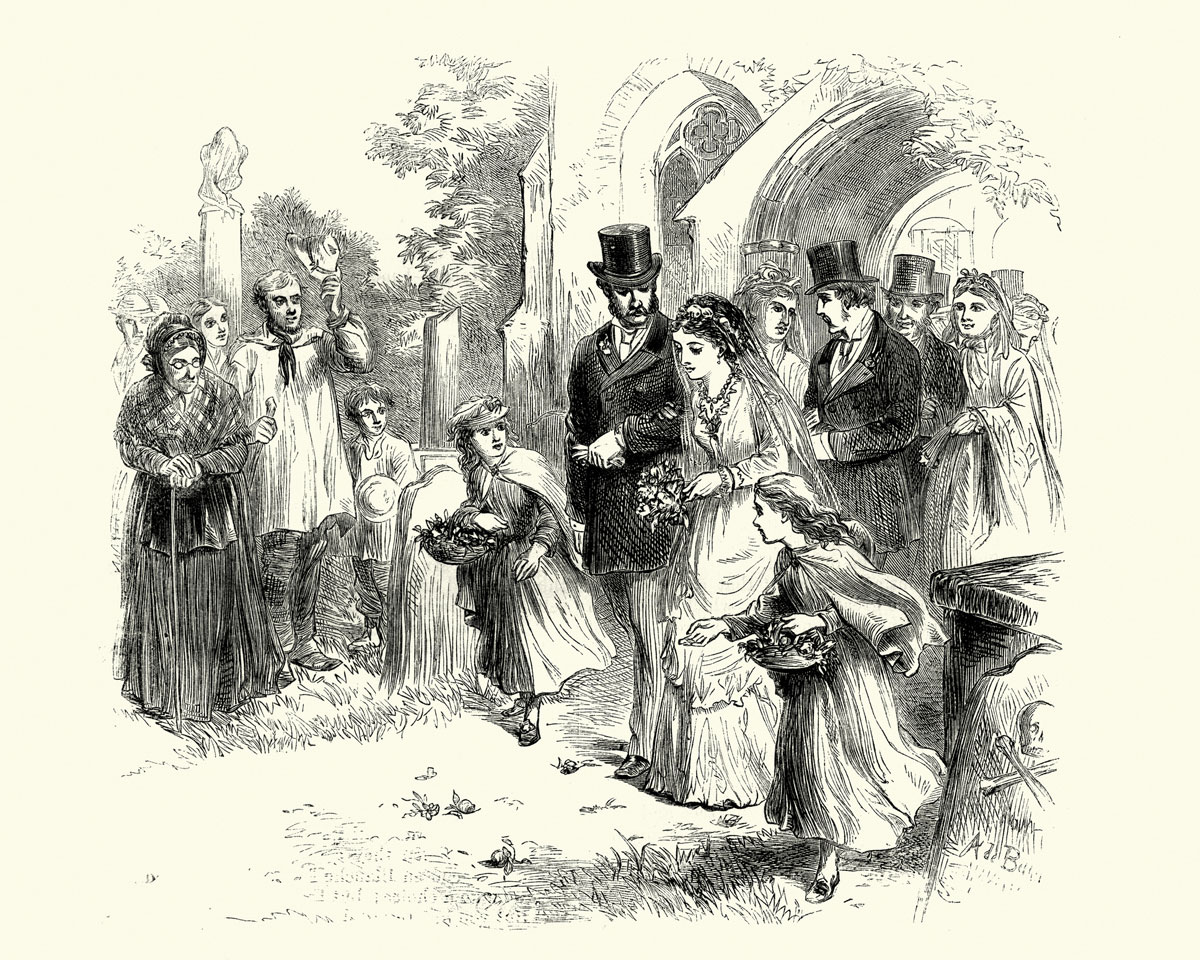Feature
Glorified Occupations
Consumer Man versus Working Man: Thoughts on the Value of Work by Hunter Baker
I have been a lifelong science fiction enthusiast. Through decades of reading the stories in novels and comics, I have noticed that the vision of winning the battle over work has always been on the horizon. For instance, in one of my father's old Superman comics, the iconic hero travels to the future, where he sees men and women drinking cocktails served by robots while automatic tractors till the fields. Universal basic incomes provided by technocratic governments to free human beings from drudgery have long been part of the furniture of life in sci-fi worlds.
While we speculate about universal basic incomes and the impact they would have on society (a discussion that is heating up among social scientists and policy wonks), we may not realize that something like it is actually happening under our noses. Reports have been piling up in the news about the missing men in the American workforce. Historically, it has been the norm for overwhelming numbers of American men to be employed throughout their working-age lives. But in 2013 National Public Radio reported that the official unemployment rate at the time—4.9 percent—masked a disturbing phenomenon among American men of prime working age. As many as ten million of them had dropped out of the workforce. They were neither working nor attempting to find work. As a result, they were not counted in the employment statistics. They were managing by living with their parents or with a spouse or girlfriend and were seemingly satisfied to spend much of their time playing video games or streaming television shows and movies. The NPR report also noted that most of these men were not using their time away from jobs to be primary caregivers for their families. Only five percent of these missing workers were filling that critical domestic role.
A separate, but surely related, fact is that the number of disability payment recipients has continued to grow. Again from NPR, we have a report that the federal government now spends more on disability payments than it does on food stamps and welfare combined. Look at the billboards out on the highways. There appears to be a big business for attorneys who promise clients they can get them on the disability rolls.
None of this is to say that there aren't some former workers who have become permanently injured or disabled from working, but it does seem that the disability category is the frontier of the universal basic income. If you can't get a middle-class income out of a high-school education, there is a reasonable chance you'll end up on disability.
The NPR report concluded:
[D]isability has . . . become a de facto welfare program for people without a lot of education or job skills. But it wasn't supposed to serve this purpose; it's not a retraining program designed to get people back onto their feet. Once people go onto disability, they almost never go back to work. Fewer than 1 percent of those who were on the federal program for disabled workers at the beginning of 2011 have returned to the workforce since then.
But, in most cases, going on disability means you will not work, you will not get a raise, you will not get whatever meaning people get from work. Going on disability means, assuming you rely only on those disability payments, you will be poor for the rest of your life. That's the deal. And it's a deal 14 million Americans have signed up for.
The Real Losers
Based on the way I began this essay, the reader might think I am going to make a case against individuals who passively absorb government benefits and add to the tax and debt burdens of the employed. But that judgment would be premature. I do not think that unemployed people who survive via family members, friends, and/or government benefits are simply advantage-takers cheating the rest of us out of our money. No, I think they are the ones losing out. They occupy a bad position in society, and many are in a bad way spiritually. It may be tempting to think of them as taking advantage of those who wake up every morning and head off to work, but the truth is that they tend to live a marginal existence.
The reality is that a life without work is not a good life. I mentioned science-fiction portrayals of life with income and without work. While some writers indeed present that state of affairs as a great social advance to be hoped for, others see it as something profoundly negative. I think of Nancy Kress's Beggars in Spain series, in which she envisions a future inhabited by "Livers" and "Mules." At first it appears that the Livers (people who just live) are the winners. They don't have to do anything and are taken care of by the hard-working Mules. But the secret is that the Mules, though presented as carrying the burdens of society, are actually the ones who benefit most. They are smart, industrious, and productive. Because they have something to contribute to community life, they are indispensable. And they do not want to be Livers. They fight to remain relevant to the community as people who make a contribution.
Kress's story turns some of our presuppositions on their heads. We think of the privileged as the ones who don't have to work and instead can simply indulge in leisure. But Kress understands that work is actually a key to a fulfilling existence.
Think also of the Pixar film Wall-E. In this story, human beings have had to abandon planet earth and have adopted a lifestyle of simply existing onboard an enormous spaceship. As the story unfolds, we have some opportunities to observe their decline. We meet them at a point where they are mostly just floating around on reclining hoverchairs, drinking smoothies, and watching the screens projected in front of their faces. These people are redeemed when Wall-E helps rouse them out of their stupor and motivates them to return to earth to take up the work of restoring their lost civilization. There is a real sense in which they appear to reclaim the mantle of Adam. They will tend to the creation and exercise a vigorous stewardship over it. As the ending credits roll, we see them becoming stronger, leaner, and more purposeful. They have tasks to perform, the tasks of stewardship, for which their bodies were made.
These stories show that the good life does not consist in escaping work. It consists in finding meaningful work to do. Work is one of the primary avenues through which we make contributions to the lives of others while simultaneously enriching our own.
Röpke's View of Work
Professor Brad Birzer's biography Russell Kirk (2015) not only tells of that conservative giant, but also includes mini-biographies of other notable figures. One such is Wilhelm Röpke, the Christian economist who helped bring about a miraculous turnaround in the West German economy after World War II. Birzer tells of an encounter between Röpke and his Jewish friend, the Austrian economist Ludwig von Mises:
In Geneva at the beginning of WWII, the German-born Christian Röpke showed his friend and guest [von Mises] the public space that had been divided into garden plots, allowing the citizens of Geneva a place to grow [produce] should the war deprive the city of food. Mises, the story runs, shook his head: "a very inefficient way of producing foodstuffs!" "Ah," Röpke responded, "but perhaps a very efficient way of producing human happiness."
What did Röpke mean? Both men were accomplished economists who understood the gains achieved by specialization, automation, and economies of scale. But Röpke perceived that there are other considerations that should count. To him, it was reasonable to think that the people of Geneva would be better off (considering both body and soul) having the responsibility to tend garden plots than passively relying upon some food distribution effort, however efficiently organized, in which they played no part. Having food is good and important, but having food and the work to do that produces it might be even better, especially in fearful times. Working with the goal of protecting against bad circumstances might actually strengthen the spirit—might produce joy.
Röpke's marvelous book A Humane Economy is a tour de force of scholarship in a tradition some refer to as Christian Humanism. Throughout the book, Röpke passionately and wisely argues for a vision of man as something more than homo economicus.
The Poison of Pervasive Commercialism
Given that kind of introduction to Röpke, you might think I'm talking about a scholar in the collectivist tradition, but it isn't so. He was terribly concerned with liberty. He found it to be essential. But he saw a danger inherent in both capitalism and socialism. Both could simply focus on meeting material needs and wants without being concerned with the spiritual nature of human beings.
Röpke feared that our obsession with achieving material satisfaction would lead us to the boredom of a child who always has his wishes immediately fulfilled. New toys relieve boredom for only a short time. He worried that the preoccupation (in his time) with new vacuum cleaners and electric razors would contribute to an identity for human beings primarily as consumers.
He asked, "Is there any more certain way of desiccating the soul of man than the habit of constantly thinking about money and what it can buy? Is there a more potent poison than our economic system's all-pervasive commercialism?" What Röpke realized is that material progress can have effects that we don't even think about.
It is interesting to consider that the Amish don't shun technology on purely theological grounds. Rather, they believe that embracing certain technologies will undermine important values they share within the community. Those values have to do with such things as the nature of work, the ways families spend time together, the priority of service to others in the community, and the ability to focus attention on something for an extended period of time.
The key point here is that we should not be too satisfied with a society that is extremely good at delivering material well-being to people while also fostering tendencies that keep them from leading good lives. Yes, material welfare is a principal reward we want from the economy, but the work by which we contribute to a thriving economy itself constitutes an important part of the reward.
Social Status & Function
Peter Drucker, probably the most prominent management theorist of the twentieth century (and a mentor to Rick Warren), shared Röpke's concern with the insufficiency of something like a master plan of income provision. He wrote that too many modern writers fail to realize that unemployment is a serious problem for reasons beyond a lack of money. Unemployment, in his view, leads to social disenfranchisement. The unemployed often don't really share a life with employed people. They don't tend to interact with the employed socially or to marry them. Drucker believed the unemployed were also uniquely vulnerable to games of chance. Since, as they believe, their lack of work is a result of forces beyond their control, why not try to benefit from the random movements of fortune?
Drucker correctly ascertained, even in the period after the Second World War, that we have the technical wherewithal to provide essentials to all Americans. But what people really want out of employment is what Drucker called "social status and function." He said that entitlement programs are like vitamins: they remedy deficiencies, but they don't provide calories.
What did Drucker mean by "social status and function?" He was referring to the things that come with work beyond just the money. People tend to respect work as at least partly constitutive of a life. So having work has a positive effect on the way others perceive you. That's the "status," but what about the function? That is the contribution one makes by working. Yes, you earn money to take care of yourself and your loved ones, but there is something else. By working, you help create something of value that enters the economy of exchange. You have actually put something out into the world that might not have been there but for your time and effort.
To the extent that people are being left out of the world of work—whether through technological innovation, educational limitations, changes in the nature of occupations, disruption in various industries, or even through programs such as the disability fund—both our society as a whole and the individuals who live in it lose something important.
Necessary Spiritual Conditions
What do we need to understand about this economy in which we exchange the products of our work and which is so important to human flourishing? I think it is critically important to reject the idea that the market is simply a secular thing and that we will mess it up by bringing our "extraneous" moral and spiritual frameworks to bear upon it. That is a mistake.
Let me return to Röpke, who noted that the modern market system is not self-sustaining. It draws upon reserves it did not create.
Self-discipline, a sense of justice, honesty, fairness, chivalry, moderation, public spirit, respect for human dignity, firm ethical norms—all of these are things which people must possess before they go to market and compete with each other. These are the indispensable supports which preserve both market and competition from degeneration. Family, church, genuine communities, and tradition are their sources.
Moreover, "the market, competition, and the play of supply and demand do not create these ethical reserves; they presuppose them and consume them."
In other words, there are conditions, spiritual conditions that need to exist for the market to function. When they are lacking, the government will have to step in more and more frequently to try to rein in predatory and dishonest behavior. A society that lacks virtue, Plato observed in his Republic, will have great need of both doctors and judges to address sick bodies and sick souls.
To be blunt, sin corrupts our work and our motives. We need Christ to help us work rightly and for good reasons. We need our God who helps us to believe in truth and love and to express these things through our work.
Part of what the church can do is to help people develop the spiritual resources they need to contribute to a good economy, an economy where there is an honest exchange of value between the participants. In such an economy, the work that is done has quality. Services performed possess a degree of excellence. Those who pay exchange the fruit of their labor for that offered by their neighbors in the community. We should help people understand that through our work we give glory to God and show love to our neighbor.
A cold, sterile, and secular economy ends up being something like a game between utility and profit maximizers. You look out for yourself; I'll look out for myself. I want to pay the absolute least I can. You want to work as little as possible to produce the good I am buying. Somehow, that system, which denies the need for any overarching moral values that exist outside of itself, is supposed to result in us doing good for one another.
But it won't work out that way. People and organizations occupy many different positions of strength and sophistication in the broader economy. Where spiritual values, the kind we receive from the Christian faith, are lacking, the game can be played ruthlessly and in such a way that trust is lost or misplaced. As a result, we may see a lot of predation. And we may also observe rational loafing and technically permissible cheating. Employers, workers, and customers alike will seek to be users of one another. Instead, we should seek to give value for value. The Bible enjoins the use of honest weights and measures (as expressed in at least eleven places in the Old Testament, five of them in Proverbs) over against the shady, advantage-taking, selfish spirit that can overtake individuals.
I must become the kind of person who chooses to learn my craft or my profession so that I can give something good to others, and others should do the same so they can render something good unto me. We shouldn't seek to take advantage of one another, but to honestly, lovingly, and for mutual benefit create and add value to be exchanged between neighbors, brothers, and sisters.
The Value in Teaching
I know that many folks think of professors as living in ivory towers, disconnected from the real world. But I find myself thinking seriously about the nature of my work all the time. Maybe it has do with the notion that all the students in the world could just sign up for gigantic online classes taught by celebrity professors, but my profession is itself in a time of self-examination.
I often think about a scene from the film Good Will Hunting in which Matt Damon's character jumps into an unbalanced intellectual match-up between his working-class friend and a student at an Ivy League school. During the confrontation, Damon mocks the privileged university student by saying he could have had the same education for a couple of dollars if he'd only thought to obtain a library card and make good use of it.
Does that scene fairly represent the real situation? It serves nicely to take the starch out of the egotistical Ivy Leaguer, but for me it raises a simple question: "How do I add value to the education of my students?" Would they be just as well off if I simply handed them the schedule of readings for the semester and told them to return for the final exam in a few months?
Of course, even doing just that would require my knowledge to determine the readings. But there are other things I bring to the classroom. I am an interpreter of the texts I have selected. I know the most critical parts of each book or article. I know the debates that lie behind them. And I am capable of judging students' efforts at articulating what they have learned. At my best, I may even write the books or articles that students will study in their courses. This is the nature of my work. If I do these things well, I add value to the process and the students receive a benefit from my being there.
A Gift, Not a Curse
This is the fundamental nature of the challenge we all face. All of us should think about our work and what we bring to it. We should be serious about that in our spirit. I just used the corporate-sounding language of "adding value," but let me employ something still more straightforward and plain. Lester Dekoster, former library director at Calvin College, wrote a wonderful little volume called Work: The Meaning of Your Life. He wrote that "work is the form in which we make ourselves useful to others." Dekoster continued by saying that work puts us in the service of others and "through work that serves others, we also serve God." God weaves all this work into a culture. Dekoster pointedly noted that if all this work stops, so does civilization. It falls, and quickly.
What I love about Dekoster's formulation that "work is the form in which we make ourselves useful to others" is that it is so personal. It's about relationship and exchange between people.
The takeaway here is that work is a gift from God, not a curse. Although it can be tiresome and difficult, it is not something we should wish away. The science-fiction dreams of human beings being released from all labor would probably be better seen as nightmares. Being without work is a loss, not a gain, even if a government check softens the blow. We are made to continually be in fellowship with one another by working, creating value, giving, and receiving.
This is who God has made us to be. Work is an important way in which we express love of God and love of our neighbor. Work can help deliver us from a trivial existence based on continual self-amusement and consumption. When the Lord returns, let us be found working—not to make ourselves wealthy and powerful, but to be found faithful as his chosen stewards and as brothers and sisters trying to shine forth for his kingdom and his glory.
Hunter Baker , J.D., Ph.D., is the dean of arts and sciences at Union University, a fellow of the Ethics and Religious Liberty Commission, and an affiliate scholar of the Acton Institute.
subscription options
Order
Print/Online Subscription

Get six issues (one year) of Touchstone PLUS full online access including pdf downloads for only $39.95. That's only $3.34 per month!
Order
Online Only
Subscription

Get a one-year full-access subscription to the Touchstone online archives for only $19.95. That's only $1.66 per month!
bulk subscriptions
Order Touchstone subscriptions in bulk and save $10 per sub! Each subscription includes 6 issues of Touchstone plus full online access to touchstonemag.com—including archives, videos, and pdf downloads of recent issues for only $29.95 each! Great for churches or study groups.
Transactions will be processed on a secure server.
more on culture from the online archives
more from the online archives
calling all readers
Please Donate
"There are magazines worth reading but few worth saving . . . Touchstone is just such a magazine."
—Alice von Hildebrand
"Here we do not concede one square millimeter of territory to falsehood, folly, contemporary sentimentality, or fashion. We speak the truth, and let God be our judge. . . . Touchstone is the one committedly Christian conservative journal."
—Anthony Esolen, Touchstone senior editor













